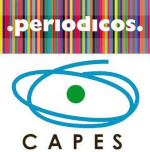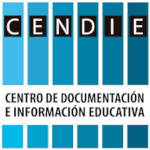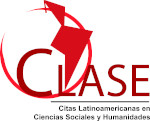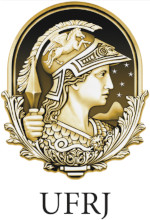Experiencia y significado de las tutorías: del enfoque socrático a la nueva ciencia del aprendizaje
DOI:
https://doi.org/10.26849/bts.v46i2.828Palabras clave:
La división social del conocimiento, Práctica y conocimientos almacenados, Tutores y aprendices, Pedagogía de la formación profesional, Pedagogía de las profesionesResumen
La tutoría como práctica deseada en las organizaciones educativas ha pasado a un primer plano en los debates sobre el aprendizaje y la enseñanza en las últimas décadas. La tutoría como concepto en la teoría educativa de la tradición europea está vinculada con el denominado «método socrático». El maestro-docente es una persona con experiencia con la que los jóvenes pueden conversar. Las preguntas y reflexiones deben suscitar la curiosidad y el compromiso de los estudiantes en la búsqueda de nuevos conocimientos. Este entendimiento del conocimiento y el aprendizaje se corresponde con un modelo de enseñanza en el que la «actividad práctica» es la base del aprendizaje. Las contradicciones entre las distintas perspectivas de las formas de aprendizaje son un tema central en nuestros tiempos. El presente trabajo habla de esta problemática a la luz del trabajo científico de John Dewey, Célestin Freinet, Paulo Freire, Maria Montessori y Lev Vygotsky.
Downloads
Citas
ADAMSON, Glenn. Thinking through craft. Oxford: Berg Publishers, 2007.
ALBÆK, Karsten et al. Better late than never?: how late completion affects the early careers of dropouts. IZA Discussion Paper, [s. l.], n. 12560, p. 1-39, Aug. 2019.
BAKKEN, Anders; ELSTAD, Jon Ivar. For store forventninger: kunnskapsløftet og ulikhetene i grunnskolekarakterer. Oslo: Norsk institutt for forskning om oppvekst, 2012. (NOVA Rapport, 7/12).
BARATO, Jarbas Novelino. Saber do trabalho, aprendizagem situada e ensino técnico. Boletim Técnico do Senac, Rio de Janeiro, v. 37, n. 3, p. 19-29, 2011.
BARATO, Jarbas Novelino. Trabajo, conocimiento y formación profesional. Montevideo: OIT/Cinterfor, 2016.
BEFRING, Edvard. De pedagogiske kvalitetene: løfterike muligheter for barn og unge. Oslo: Universitetsforlaget, 2018.
BIRD, Alexander. Thomas Kuhn. Chesham: Acumen, 2000.
BOURDIEU, Pierre; PASSERON, Jean-Claude. Les étudiants et leurs études. Paris: Walter de Gruyter, 1964.
CHIASSON, Dan. The man who built the Bauhaus. The New Yorker, New York, 29 Apr. 2019. Disponível em: https://www.newyorker.com/magazine/2019/04/29/theman-who-built-the-bauhaus. Acesso em: 22 jul. 2020.
COOPER, Linda. Conceptual and practical knowledge in workers’ education. In: VET CONFERENCE, 2018, Zürich. Annals […]. Zurich, [s. n.], 2018.
DEWEY, John; DEWEY, Evelyn. Schools of tomorrow. New York: E. P. Dutton & CO., 1962.
EIKELAND, Olav. The ways of Aristotle: Aristotelian phronesis, Aristotelian philosophy of dialogue, and action research. Bern: Peter Lang, 2008.
ENGESTRØM, Y. Developing work as educational research: looking back ten years into the zone of proximal development. Nordisk Pedagogikk, [s. l.], v. 16, n. 3, 1996.
FREIRE, Ana Maria Araújo; VITTORIA, Paolo. Dialogue on Paulo Freire. Interamerican Journal of Education for Democracy, [s. l.], v. 1, n. 1, p. 96-117, Sept. 2007.
FREIRE, Paulo. Pedagogy of the heart. New York: Continuum, 1998.
GOTTLIEB, Susanne. How Denmark try to solve the problem of dropout in vocational education. New Journal, [Nagoya], n. 17, p. 48-57, 2018.
GRIGNON, Claude. L’ordre des choses: les fonctions sociales de l’enseignement technique. Paris: Edition de Minuit, 1971.
JOHNSON, Mark. The meaning of the body: aesthetics of human understanding. Chicago: University of Chicago Press, 2008.
KOSSLYN, Stephen; NELSON, Ben. Building the intentional university. Massachusetts: The Mit Press 2017.
KVALE, Steinar. En pædagogisk rehabilitering af mesterlæren?. Dansk pædagogisk tidsskrift, [s. l.], v. 41, n. 1, 1993.
LIVINGSTONE, David W. (ed.). Critical pedagogy and cultural power. [S. l.: s. n.], 1987.
MAYO, Peter. Praxis. In: Peters Michael A. (ed.). Encyclopedia of educational philosophy and theory. Singapore: Springer, 2016.
MJELDE, Liv. Apprenticeship: from practice to theory and back again. Joensuu: University of Joensuu Press, 1993.
MJELDE, Liv. From hand to mind. In: LIVINGSTONE, David W. (ed.). Critical pedagogy and cultural power. [S. l.: s. n.], 1987. p. 205-221.
MJELDE, Liv. Labour and learning: the apprenticeship program in Norway. Interchange, [s. l.], v. 21, n. 4, p. 34-48, 1990.
MJELDE, Liv. Learning through praxis and cooperation: Lev Vygotsky and vocational pedagogy. In: MARHUENDA-FLUIXA, Fernando (ed.). Vocational education beyond skill formation. Bern: Peter Lang, 2017.
MJELDE, Liv. The magical properties of workshop learning. Bern: Peter Lang, 2006.
MJELDE, Liv. Mentoring experience and meaning. In: COKKINOS, Dennis V. et al. (ed.). The capital of knowledge. Athens: Society for the Propagation of Useful Books, 2020.
MJELDE, Liv. Mentoring our knowledge for the future. Athens: European Association of Professor Emeriti, 2016. Keynote speech.
MJELDE, Liv. Mentoring vocational self-reliance: lessons from Uganda. In: MOLZBERGER, Gabriele; WAHLE, Manfred (ed.). Shaping the futures of (vocational) education and work. Bern: Peter Lang, 2015. p. 101-124.
MJELDE Liv. The promise of alternative pedagogies: the case of workshop learning. In: WATSON, K. et al. (ed.). Educational dilemmas: debate and diversity. London: Cassell. 1997. p. 331-340.
MJELDE, Liv. Las propiedades magicas da la formacion en el taller. Montevideo: OIT/Cinterfor, 2015a.
MORIN, Edgar. On complexity. New Jersey: Hampton Press, 2008.
NORWAY. Ministry Knowledge. Kompetansereformen- Lære hele livet. Oslo: Ministry of Knowledge, 2020. (Stortingsmelding, 14).
NORWAY. Ministry of Knowledge. På rett vei. Kvalitet og mangfold i fellesskolen. Oslo: Ministry of Knowledge, [2013?]. (Norwegian Official Report, 20).
PAVLOPOULOS, Prokopios. The Roots of learning: the mentor’s role. In: COKKINOS, Dennis V. (ed.). The capital of knowledge. Athens: Society for the Propagation of Useful Books, 2020.
PORTES, Pedro. R.; SPENCER, Salas. Vygotsky in 21st society: advances in cultural historical theory and praxis with non-dominant communities. New York: Peter Lang, 2011.
ROSE, Mike. The mind at work: valuing the intelligence of the American worker. New York: Penguin, 2014.
SMITH, Dorothy E. Institutional ethnography: a sociology for people. Lanham: AltaMira Press, 2005.
SOHN-RETHEL, Alfred. Intellectual and manual labour: a critique of epistemology. London: Macmillan, 1978.
STROBELT, Michael. Kritisk pedagogikk - et svar på dagens kunstpedagogiske utfordringer? Journal of Research in Arts and Sports Education, Oslo, v. 2, n. 2, p. 4-18, 2018.
VYGOTSKY, Lev. Mind in society: the development of higher psychological processes. Cambridge: Harvard University Press, 1978.
Descargas
Publicado
Cómo citar
Número
Sección
Licencia
Compromiso de Facilitación de los Trabajos en Licencia Creative Commons
El Boletín Técnico de Senac estará disponible a través de la licencia BY NC, de forma gratuita y sin fines comerciales.
En vista de ello, al someter sus trabajos para evaluación, los autores se comprometen a proveer la disponibilidad de sus trabajos por la licencia Creative Commons BY NC junto al sitio web <https://b.creativecommons.org>, dispensando así la necesidad de la firma de cualquier documento o contrato con Senac para regular la disponibilidad de sus trabajos en el Boletín Técnico de Senac.
Los autores declaran que reconocen el Boletín Técnico de Senac como periódico electrónico de acceso libre, cuyas Políticas y Directrices para Autores están a disposición para conocimiento en su sitio web oficial, a saber: www.bts.senac.br y que las mismas pueden ser modificadas en cualquier momento, quedando inmediatamente cualquier nueva condición publicada en línea.




















